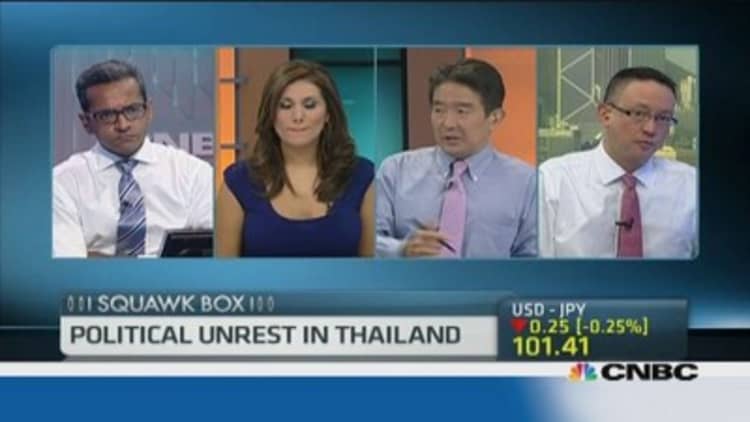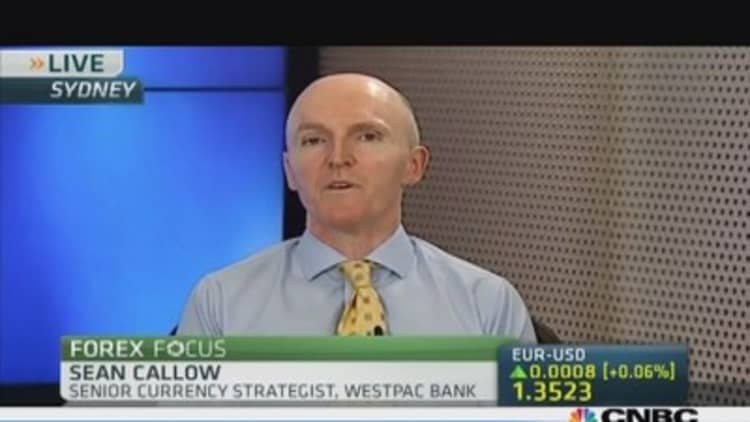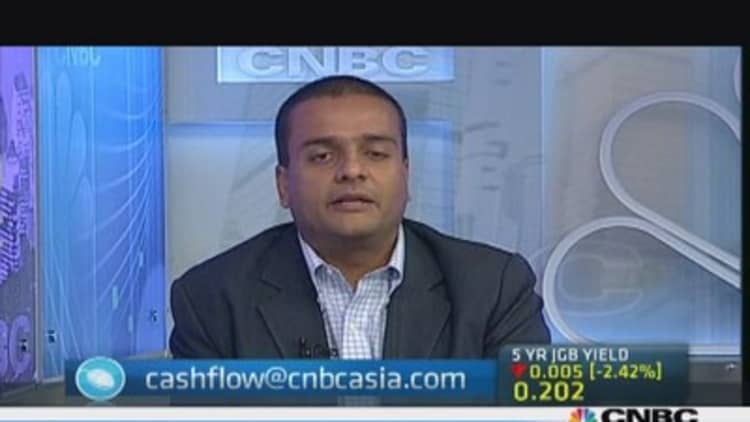
Thailand is in the throes of its deepest political turmoil in years, and while it's unlikely to have a long-term impact on the economy, it could keep foreign investors away for some time, analysts say.
(Read more: Thai Finance Ministry occupied amid huge anti-government protests)
Thai Prime Minister Yingluck Shinawatra on Tuesday faces a non-confidence debate in parliament, which she is expected to pass given her party's majority in parliament.
Still, the debate comes one day after anti-government protestors forced their way into the finance ministry in a growing bid to oust the prime minister, fueling concern about political risk in Southeast Asia's second biggest economy.
Against this backdrop, the Thai baht weakened to about 32.10 per U.S. dollar, its lowest level since early September. Thai stocks, one of the worst performing Asian markets this year, were steady in early trade Tuesday but near the previous day's over two-month low.
"You have to at least run with this [the protests] on a multi-week, month basis and perhaps as an intra-Asia play, so underweighting the baht relative to some of the more attractive Asian currencies," Sean Callow, senior currency strategist at Westpac Bank, told CNBC's "Squawk Box."
"It's not the sort of situation that gets resolved quickly. It's probably going to rumble on for a while and just hope it doesn't come to violence the way it has in the past. But in the short-term, it is having an impact so you would expect the baht and stocks to underperform," he added.
Thailand has been beset by political unrest in recent years, with some incidents turning violent. In 2010 for instance, about 90 people died in a series of clashes between demonstrators and security forces in Bangkok.

Protestors say that Yingluck is a proxy for her brother former Prime Minister Thaksin Shinawatra, who was ousted in a 2006 military coup.
The latest demonstrations were triggered a few weeks ago by a government-backed amnesty bill that could have allowed Thaksin to return home without facing time in prison for a graft sentence in 2008.
(Read more: Thailand's investors spooked by 'forgiveness')
While that bill was dropped, the street protests have broadened out to an explicit call for Yingluck to step down. Yingluck, supported by Thailand's rural regions that helped her secure a landslide win in 2011 elections, has said she will not stand down.
Thailand's economy grew 1.3 percent in the third quarter from the previous quarter, expanding for the first time in three quarters.
Analysts say the economy has proved resilient to political strife in recent years and that should remain the case.

"Even in the worst case, the political strife is like a supply shock to the economy, which should bounce back from any negative impact," said Tim Condon, head of research at ING Financial Markets.
Michael Every, head of financial markets research for Asia-Pacific at Rabobank, added: "You have to remember that while this is very messy when we see it on TV, most of the Thai economy is not based in the center of Bangkok where the protests are taking place."
(Read more: No capital controls for Thailand: Finance Minister)
Still, analysts added that the turmoil was something to watch.
"I don't think it should impact investment decisions into Thailand, but at the same time the whole of ASEAN is not looking great at the moment, so maybe investors will move back to previous darlings such as China," said Aadil Ebrahim, managing director at investing firm Bowen Asia, referring to the Association of Southeast Asian Nations.
Rabobank's Every said that foreign direct investment (FDI) into Thailand could take a hit.
"FDI flows are going to be affected by this, if you look at ASEAN moving towards a single market and you're an investor today trying to decide where to put your headquarters, would you choose Bangkok?," he said.
—By CNBC.Com's Dhara Ranasinghe; Follow her on Twitter @DharaCNBC


